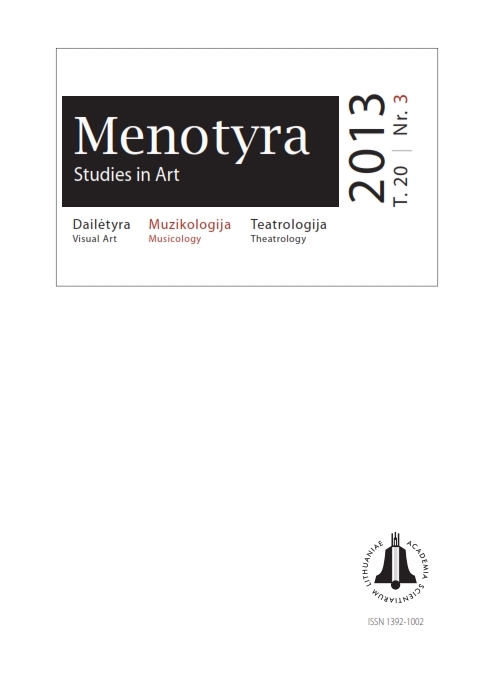Maldos archetipo transformacijos emigrantų kūryboje:
katastrofinio modernizmo gestai A. Mackaus poezijoje,
J. Gaidelio ir L. Apkalnio vargonų muzikoje
Prayer transformations in emigrant creation: gestures of catastrophic modernism in poetry of A. Mackus and organ music of J. Gaidelis and L. Apkalnis
Author(s): Jūratė LandsbergyteSubject(s): Fine Arts / Performing Arts, Music
Published by: Lietuvos mokslų akademijos leidykla
Keywords: Prayer; emigration; catastrophic modermism; poetry; music; lament; scream; gesture; archetype; Self; light-darkness processes
Summary/Abstract: Lithuanian occupation undergone in the Lithuanian emigration in the USA opened an alternative space. It is ideologically not constrained by the art of the post-war epoch. It is described as catastrophic modernism. Now we accept this style as an essential break of Lithuanian literature, which is the brightest in dramaturgy, prose, poetry and partially in music. Its leitmotif is the Prayer - for the mother-country, for the nation’s survival, for the destiny of brothers and sisters, the existential concern of which is felt only by the nations which are marked by the state’s loss and which lost the space of identity. The Prayer became almost the main form of poetry - it is entrenched in the poems of B. Brazdžionis, H. Nagys, A. Mackus as if a response to the Mass, church songs, praying, protest, screams and gestures of bitter irony. In this sense, the Prayer is also reflected in the creation of emigrant music, where it is also in the medium of church music or the nostalgia of its reminiscences. The article compares the poems of USA emigrants - poet A. Mackus (1932-1964) and the work for organs of composer J. Gaidelis “Evening’s Meditation” (“Vakaro meditacija”) created for the dedication of Shiluva Chapel in Washington Captive Nations Cathedral (1966). In parallel, the 6th decade of the 20th century as the tragedy of the nation is also reflected by the work for organs of a Latvian emigrant Longins Apkalns “Quaternio latviensis” (1968). The expression of the affected self and praying is unclosed. The Prayer as an archetypical scream from the depths to the light is an essential gesture of spiritual eternity leading the nations behind the limits of local loss.
Journal: Menotyra
- Issue Year: 20/2013
- Issue No: 3
- Page Range: 255-272
- Page Count: 18
- Language: Lithuanian

